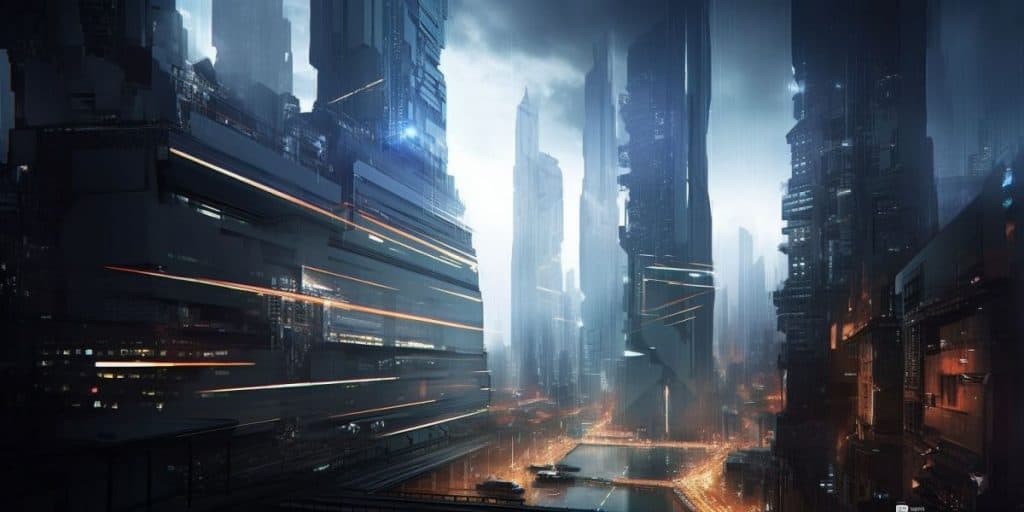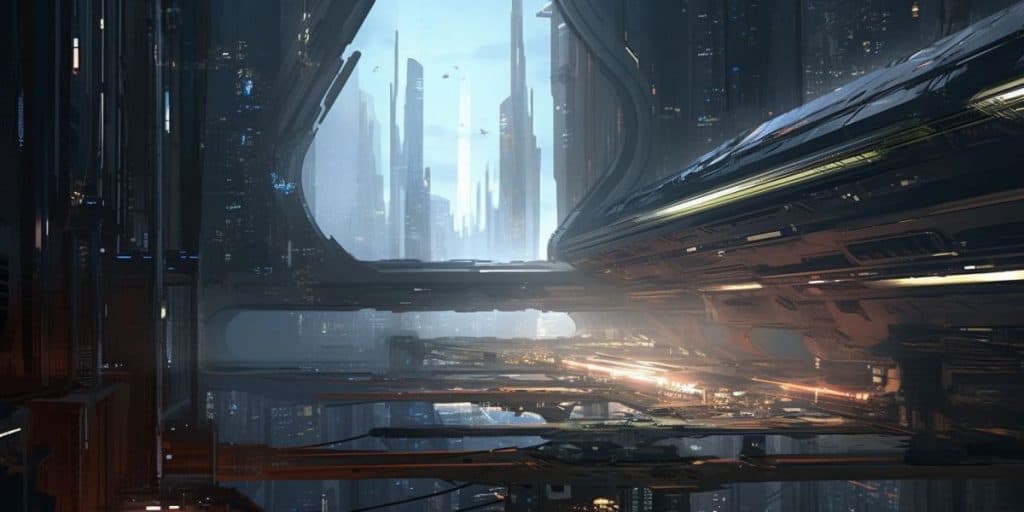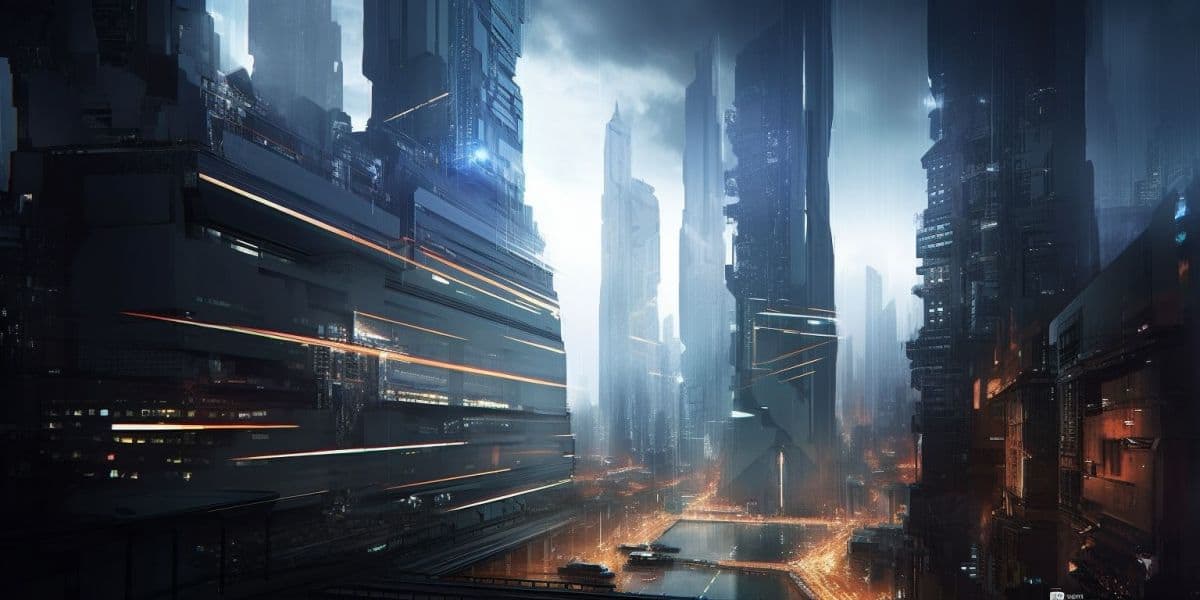It seems it is likely the first of George Orwell’s prophecies will come true again in the 21st century.
When someone hears Orwell’s name, most think of his famous dystopian novel “1984”. The novel, written in 1948, depicted a dystopian society that governed every aspect of its citizens’ lives. He prophetically described the emergence of the “Ministry of Truth,” which rewrites history, the “Thought Police” and “Big Brother” under the guise of which society lives, and the emergence of the super-popular memes “peace is war,” “hate hour,” “thought crime,” and “newspeak.” While the author reimagined what was happening in the 1940s and was not necessarily thinking about the future, for many, the book seemed prophetic.

However, there was another very prophetic work created by Orwell—an essay published a few years earlier, in 1945. “You and the Atomic Bomb” offers an amazingly accurate prediction of what the creation of a superweapon, the atomic bomb, would cause globally. The result of this, as Orwell prophesied, would be a “long peace” without large-scale wars. And the price of establishing this “peace that will not be a world” will be a “permanent cold war between the US and the Russians,” who “do not yet have the secret of making an atomic bomb, but everything indicates that they will receive it within a few years.”
And so it all happened. But even more striking is the following. In the essay “You and the Atomic Bomb,” Orwell succinctly and accurately described the mechanism of the course of world history’s dependence on the progress of technology.
- World history is the history of weapons.
- Increasingly powerful weapons are the result of technological advances.
- New weapons can be “simple,” that is, relatively cheap and available for production by any country (bows, guns, machine guns, grenades, etc.) or “complex” — expensive and only available for production by “superpowers” (like tanks, battleships, and bombers).
- “Complex” weapons are “tyrannical” in nature; they make the strong stronger. And the “simple” is “democratic” by its nature, “until they find justice for it, gives its claws to the weak.”
- Nuclear weapons are “super complex” and, therefore, “super tyrannical.”
- The atomic bomb can finally complete the process of depriving the exploited classes and peoples of the ability to revolt and, at the same time, lay the foundation for military equality among the owners of the bombs.
- Owners of nuclear weapons: “Since it is impossible to defeat each other, they are likely to continue to rule the world separately.” And as a result of this, “the world will not come to general self-destruction but to an era of the same terrifying stability as the slave-owning eras of antiquity” adjusted for the increase in prosperity due to progress.
Because this prediction, which came true in the 20th century, will be exactly repeated in the 21st century with the advent of a new “superweapon” that is “super complex” and “super tyrannical.” This is the generative AI of large models.

The authors of the report “Predictability and Surprise in Large Generative Models” warned in February that most decisions determining the future of these super-powerful technologies will be made by increasingly tiny groups of capital-intensive private sector actors in the two countries.
The new large and serious AINOW report “Landscape 2023: Confrontation of Technical Power” describes the same. Only a handful of companies with incredibly huge resources can build large-scale AI models.”
Even if BigTech makes its code public in its projects, the huge computational requirements of these systems will keep these projects dominating the commercial markets.
As Orwell wrote: “If the atomic bomb were something cheap and easily produced, like a bicycle or an alarm clock, perhaps the world would once again plunge into barbarism, but on the other hand, it could lead to the end of national sovereignty and the establishment of a highly centralized police state.” This is 100% applicable to AI as well.
Read more about AI:
Read More: mpost.io









 Bitcoin
Bitcoin  Ethereum
Ethereum  Tether
Tether  XRP
XRP  Solana
Solana  USDC
USDC  Dogecoin
Dogecoin  TRON
TRON  Cardano
Cardano  Lido Staked Ether
Lido Staked Ether  Wrapped Bitcoin
Wrapped Bitcoin  Hyperliquid
Hyperliquid  Sui
Sui  Wrapped stETH
Wrapped stETH  Chainlink
Chainlink  Avalanche
Avalanche  LEO Token
LEO Token  Stellar
Stellar  Bitcoin Cash
Bitcoin Cash  Toncoin
Toncoin  Shiba Inu
Shiba Inu  USDS
USDS  Hedera
Hedera  Litecoin
Litecoin  WETH
WETH  Wrapped eETH
Wrapped eETH  Monero
Monero  Polkadot
Polkadot  Binance Bridged USDT (BNB Smart Chain)
Binance Bridged USDT (BNB Smart Chain)  Ethena USDe
Ethena USDe  Bitget Token
Bitget Token  Pepe
Pepe  Coinbase Wrapped BTC
Coinbase Wrapped BTC  Pi Network
Pi Network  WhiteBIT Coin
WhiteBIT Coin  Aave
Aave  Uniswap
Uniswap  Dai
Dai  Ethena Staked USDe
Ethena Staked USDe  Bittensor
Bittensor  OKB
OKB  Aptos
Aptos  NEAR Protocol
NEAR Protocol  Cronos
Cronos  BlackRock USD Institutional Digital Liquidity Fund
BlackRock USD Institutional Digital Liquidity Fund  Internet Computer
Internet Computer  Jito Staked SOL
Jito Staked SOL  Ondo
Ondo  Ethereum Classic
Ethereum Classic